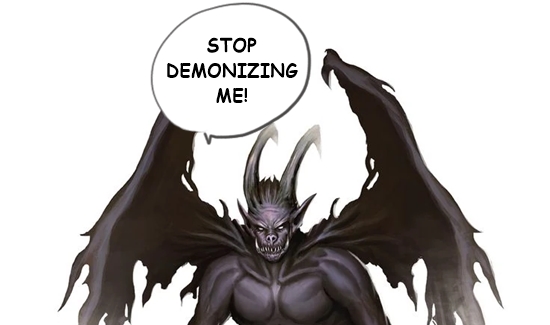
Officials of the Chinese Communist Party have no agency, no capacity to choose. They are helpless pawns of Western criticism. At least, this is what Confucian scholar Daniel Bell would have us believe.
If we want to see less Chinese state surveillance of innocent people, less censorship of innocent people, less imprisonment of innocent people, fewer murders of innocent people, and fewer unprovoked incursions against the land and resources and sovereignty of other countries, we must stop “demonizing” the Chinese state for doing these things. We certainly ought not be doing things like publishing blogs called StopTheChinazis.
Indeed, the West’s demonization of China leads “indirectly to a restriction of academic freedom and increased security threats, prominent Confucian scholar Daniel Bell said recently at an event held by a London university” (“West must not ‘demonize’ China, Confucian scholar Daniel Bell warns,” Nikkei Asia, November 26, 2023).
“Demonization” as used here is a loaded term for “condemning evil conduct.” If a little boy steals a cookie from the cookie jar and his mom screams at him as if he were a serial killer, we can rightly say that the mother is demonizing her child. We are then accurately using a standard sense of the word “demonize”: unfairly portraying someone as evil. Merriam-Webster says that the word simply means “to portray…as evil…vilify.” But the context of typical usage tends to imply that the portrayal is unfair.
Two other words we might want to think about are “direct” and “indirect.”
Somebody says something that the commissars of the Chinese Communist Party dislike. Then CCP censors hurry to censor the said thing. Whom do we blame for the censorship, the speaker or the censors?
Well, maybe the censors are the ones who directly censor the speech. But if everybody in China and the world talked only about the weather, would the CCP be censoring anybody? (Let’s assume for the sake of argument that no CCP official desires to censor complaints about the weather.) Clearly, speakers of speech who would never censor anybody themselves are also responsible, albeit indirectly responsible, for the censorship of their own speech and the speech of others.
Bell: “It tends to be that when people talk about China, it’s just repression in Xinjiang, national security law in Hong Kong, people encouraged to spy on each other…. China is much more complex, obviously, and we need a more nuanced and balanced understanding.”
Oh, obviously. China has cuisine, music, literature, sports, pavement, kids playing, water-cooler chitchat, dandelions, mountains, ships, sealing wax, many things. Why don’t we pay more attention to these other things as we describe the reeducation centers to which the Chinese state has sent hundreds of thousands of Muslims in order to be brainwashed, tortured, and/or murdered?
It’s like the way people demonize Hitler. They talk and talk about his rabble rousing, invasions, Kristallnachts, death camps and what have you. But rarely do we hear anything, for example, about the affectionate little terrier, Fuchsl, that kept Hitler company in the trenches during World War I. Eventually, somebody stole Fuchsl, a terrible loss for Hitler. You have to go to biographies of Hitler for that kind of nuance. It doesn’t come up otherwise. Yet it is true. Hitler had pets.
Also Bell: “Politicians in the U.S., maybe the U.K. also, do things that call into question the ‘One China’ policy, or even encourage forces within Taiwan that favor formal independence. That clearly might trigger a military reaction from mainland China.”
Bell is so thoroughly indoctrinated by and obedient to CCP propaganda that he cannot see all the cuckoo assumptions implied by such a statement. It’s perfectly reasonable, in his view, that one country, the much bigger one, should be militarily threatening another country, already an independent country, for “favoring formal independence.” It’s perfectly obvious, in his view, that the Chinese government has no choice but to be “triggered” when other countries happen to act as if Taiwan is a country.
Bell has a memoir, The Dean of Shandong: Confessions of a Minor Bureaucrat at a Chinese University (“terse, funny,” says James Fallows), which endeavors to show a “humane and sometimes humorous side” to China. Nikkei Asia reports that this memoir does talk about bad things, like censorship. But it also talks about hair-dyeing and driving under the influence.
Finally, thanks to Daniel Bell, the balance is being redressed. Finally, at long last, a book about China that talks about more than the crimes of the Chinese Communist Party. Now that Daniel Bell has paved the way, we can probably expect a second, a third, a fourth, maybe even a countless number of volumes considering various aspects of China other than the crimes of the Chinese Communist Party. There will probably even be newspaper stories and TV shows about these other aspects. Let a hundred nuances bloom.





